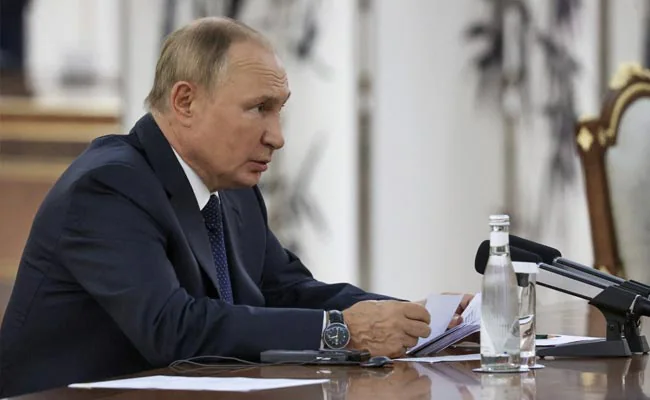Russian authorities today promised to correct mistakes in their troops for Ukraine, after some public anger over students, older or sick people were mistakenly ordered to report to work.
When Russian President Vladimir Putin announced partial mobilization on Wednesday, he said only people with “relevant” skills or military experience would be a concern.
But many stated anger after seeing – sometimes unreasonable – cases of authority who call people who are not suitable for service.
The authorities in the southwestern Russian territory Volgograd sent a former diabetes staff 63 years to the training camp, despite poor health and brain problems.
The 63 -year -old player came home Friday night, according to Russian state agent Ria Novosti.
In the same region, 58-year-old school director Alexander Faltin received call-up orders even though they had no military experience.
His daughter posted a video on social media that became viral.
He was allowed to go home after the document was reviewed, according to Ria.
A rare admission
The speaker of the Assembly of Valentina Matviyenko asked all governors – who oversee the mobilization campaign – to avoid mistakes, in a rare recognition today.
“The wrong mobilization case … provoked fierce reactions in the community, and indeed,” MS Matviyenko said in a statement about telegram.
“Some assume that submitting their reports (to their superiors) quickly is more important than fulfilling this important mission correctly,” he added.
“This is unacceptable … Make sure that partial mobilization is done in full and fully compliance with criteria. And without one mistake!” He ordered.
The Governor of the Leningrad Northwestern region, Alexander Drozdenko, told local districts to “take the appeal of residents under your personal control and handle every case,” according to a statement on the government website on Sunday.
Region Governor Vladimir Vladimir Avdeev had said on Saturday that “Anyone who was mobilized because of mistakes would return home.”
Error painted as an isolated case.
But the fact that Russian authority discusses it shows concerns about the level of anger originating from several populations.
‘Undermining confidence’
This new example is the latest Russian logistics problem revealed from the beginning of Ukraine’s offensive in February.
Russia announced on Saturday the replacement of the highest ranking general responsible for logistics in the midst of this mobilization push.
On Saturday, Valeriy Fadeev, chairman of the Human Rights Council for Kremlin, had urged Defense Minister Sergei Shoigu to “urged the problem of” to avoid “damaging people’s trust.”
He mentioned some deviations including the recruitment of 70 extended families in the far East Buryatia region, and nurses and midwives without military skills.
Fadeev said the recruits were called “under the threat of criminal prosecution.”
Mr. Fadeev also criticized them “sharing calls at 2 am as if they all thought we were Draft Evaders.”
Some students told AFP that they were given call documents, even though Russian authority promised that they would be abandoned from the recruitment encouragement.
On Saturday, President Putin signed a decision that confirmed students in vocational and high education institutions will be released from mobilization.
The detained anti-car protesters said the police gave them a call letter in prisoners ordered them to register in their efforts to criticize.
But Kremlin defended the procedure on Thursday, saying “it did not break the law”.
